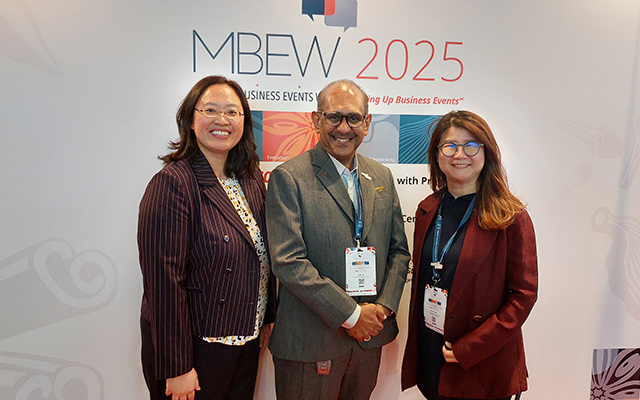Differing pace of technology adoption, late registration patterns, and growing interest in non-capital destinations for business events are among the observations shared by industry leaders on the panel session, The next era of business events in Asia Pacific, presented during the Malaysia Business Events Week this week in Kuala Lumpur.
Florence Chua, managing director Asia-Pacific at Professional Convention Management Association (PCMA), spotlighted the growing influence of AI technology.

“AI is here to stay. We want professionals to get on the bandwagon,” she stated, adding that the business events sector is still in the early stages of uncovering its full potential.
“I always tell our members – if no one is using it, where will the use cases come from? We need to keep sharing what’s working and what’s not, so we can support each other on this journey of exploration,” she said.
Recognising the need for industry-wide training on AI application, PCMA launched the SPARK Accelerator in partnership with Gevme, an omni-channel event management platform, two years ago. The initiative offers structured learning experiences that include AI workshops, practical use case development, and implementation strategies designed to enhance organisational performance through generative AI.
Chua also highlighted the importance of managing digital adoption across a multigenerational workforce. While younger professionals tend to embrace new technologies readily, more experienced colleagues may need additional time and training to adapt.
“A willingness to learn from one another is key,” she said, pointing to the need for inclusive strategies that foster collaboration and continuous learning.
On the events logistics front, Waikin Wong, senior regional director Asia Pacific at ICCA, said shifting registration patterns are straining logistics, catering, delegate engagement, and on-site coordination.
She observed that lead times for attendee registration have significantly shortened – often to just one or two weeks prior to an event – due to a combination of factors, including geopolitical or economic uncertainty, internal leadership and strategic changes within organisations, and tighter budget controls that require organisations to hold off on finalising travel and participation decisions until the last possible moment.
On a more positive note, Wong shared observations of increasing interest among business event organisers to consider non-capital destinations for their activities. This trend is driven by improvements in air connectivity, the availability of unique experiences, and strong support from convention bureaus.





















